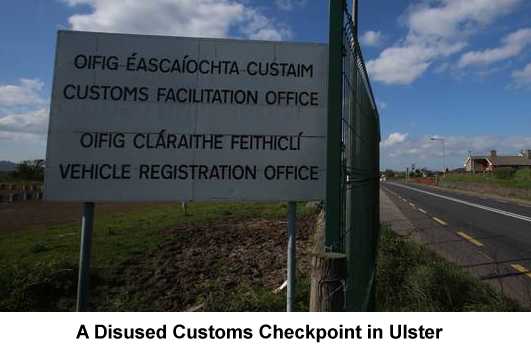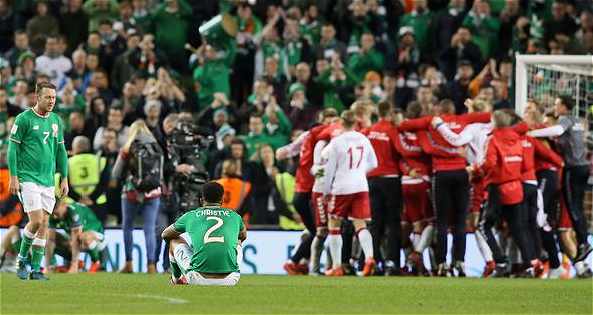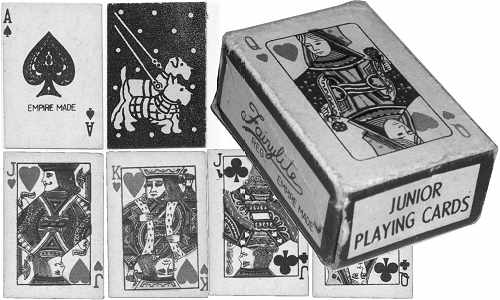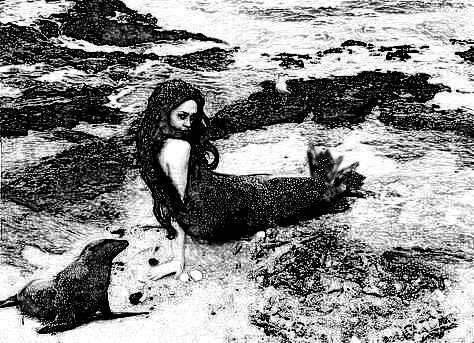IRELAND NEWSLETTER
November 2017

Winter Sun image from free public domain photos of Ireland
|
IN THIS ISSUE
- News from Ireland
- Woolworth's - A Story by Pat Watson
- The Conneelys and the Seals - by Terry Flanagan
- Tralee - A Poem by Jeremiah O'Shea
- Origin of the Word Yankee - Irish Newspapers Revisited
- Gaelic Phrases of the Month
- Monthly Free Competition Result
Popular Articles from Recent Newsletters:


FOREWORD
Hello again from Ireland where thoughts are beginning to turn to the Christmas season. The Irish economy is very much on the way back at the moment with retailers and manufacturers hoping for a bumper Christmas sales season.
In this month's edition we have another lyrical yarn from Pat Watson and a fine tale from Terry Flanagan of the connection that the families of Conneely have with Irish seals!
If you have an article or story you would like to share then please do send it in.
Until next time,
Michael

P.S.
Please Do Forward this Newsletter to a
friend or relative. If you have a website or Facebook
page or Blog (or whatever!) then you can help
us out by putting a link on it to our website:
www.ireland-information.com
|

NEWS FROM IRELAND
NO PROGRESS WITH BREXIT AS 'HARD' BORDER LOOMS
Despite increased attention by the Irish authorities there has been little progress with regard to mitigating the effects of Brexit on Northern Ireland. The division of the six Counties in Ulster from the remaining 26 Counties in the South of Ireland marks the only physical political border between the UK and the European Union.
 A 'Hard' Border may be introduced in Ulster
A 'Hard' Border may be introduced in Ulster
The Irish government is keen that no physical or 'hard' border be reintroduced as this would negate the terms of the 'Good Friday Agreement' that has brought peace and relative prosperity to Ulster since its implementation from 1999. With the British Government seemingly unable to get to grips with exactly what they want from Brexit it is likely that they will follow the easiest path as much as possible and for Ulster this will mean the reintroduction of Customs Post and a physical border.
In a fine example of 'The Law of Unintended Consequences' it is becoming apparent that Brexit may yet threaten the entire Irish peace process.
EARLY REPAYMENT OF 5.5BN LOANS SHOWS ECONOMY IS ALIVE
The Irish Government has given the go-ahead for the early repayment of 5.5BN Euro of loans from Denmark, Sweden and the IMF. It is estimated that over 150 Million Euro in interest payments will be saved as a result of the early repayment. The loans were part of the overall 67.5BN Euro loans that Ireland was forced to take out in the wake of the financial collapse that began in 2008.
Pascal Donohoe is the Irish Minister for Finance:
'Actions taken in recent years, and the sacrifices made by our citizens, have laid the foundations for a solid and sustained economic recovery in Ireland.'
The Irish economy has been expanding rapidly in recent years with Unemployment down to 6.3% from over 15% in 2012 and GDP predicted by the EU to be 4% in 2017 and 3.7% in 2018. By contrast Unemployment in Greece is 22.5%, Spain is 17.1%, Italy is 11.3%, France is 9.6%, the UK is 4.3% and the US is 4.4%.
TOURISM BOOST FOR IRELAND CONTINUES
Irish tourism is booming at the moment and this has been confirmed by the recent Central Statistics Office figures showing a 2.9% increase in the number of trips to Ireland in August-October 2017 compared with 2016.
By contrast the number of visitors from Britain continued to decline as the Sterling currency took a beating in the wake of the Brexit vote, and is down by 5.8%. Visitors from the US made up this shortfall, increasing by a massive 14.8%.
DISASTER FOR IRISH SOCCER AFTER DENMARK THUMPING
The Irish Football team will not be going to the World Cup in Russia next year after a humiliating 5-1 thrashing at the hands of Denmark.
 Irish Football Team Out of World Cup
Irish Football Team Out of World Cup
The first of the two play-off games in Copenhagen saw the Irish get a 0-0 draw that was viewed as pragmatic at the time. And after taking an early lead at Landsdowne Road that result began to look even better.
But it was not to be. Shambolic Irish defending combined with a world-class performance by the Danish talisman Christian Eriksen who scored a hat-trick in the eventual rout.
This was a bitterly disappointing and humbling experience for the Irish team who will have to rebuild. With several senior players certain to retire from international football and with a relative dearth of home-grown talent it may well be the moment that Martin O'Neill decides to take his leave as manager.
|

KEEP THIS NEWSLETTER ALIVE!
FIND YOUR NAME IN OUR
GALLERY OF IRISH COATS OF ARMS

|

WOOLWORTH'S
by Pat Watson
Smart, well-travelled people, who had been to
Dublin, knew all about Woolworth's nick-knack
shop.
They sold everything under the sun, from
a needle to an anchor. Anybody who had never
been there was backward. Then, wonderful news
arrived. They were going to open a shop in our
town.

Even the war, the rationing and the
coupons could not dampen our enthusiasm at the
great news. They had acquired the building,
work on its renovation was proceeding, and it
would be open for Christmas. Santa Claus would
be there, we had heard, but we did not really
believe that he visited the Dublin shop every
year. Now we could see for ourselves. Just
because you were only seven didn't mean you
were stupid.
When the sign over the new shop went up
everybody said that the spelling was wrong,
'Wellworths'.
They supposed it would be
noticed and put right by next week but it
wasn't. Instead we heard that it was not the
real Woolworth's at all but a copycat company.
However they would have many of the same things,
nearly as good.
The question was would they
have packs of small playing cards selling for
sixpence. A full size pack cost a half a crown.
'Haven't ye your father's playing cards, aren't
they good enough.'
That's what Mammy said.
Daddy's playing cards were several years old
and there were only thirty-seven left out of the
original pack and even those were in poor
condition. They were dog-eared and marked so that
many of them were recognisable from the back.
This led to cheating by the older members of the
family.
I had learned to count on the cards long before
I went to school. There were forty-five in the
pack then. I heard there were several games you
could play if you had all fifty-two cards but we
had only two games, strip-jack (beg of my
neighbour) and casino.
Only two could play
strip-jack so casino was usually played. In this
game every player got four cards and there were
four cards placed face up on the table. If the
first player had a card in his hand matching one
on the table, he could put both in his bank.
Sometimes he could pick two or three cards off
the table if their number added up to a card in
his hand, for instance a two a three and a four
could be picked up by saying two plus three plus
four equals my nine. He could then put all four
cards in his bank. If he had no match he just had
to leave down a card. Deals continued until all
the cards were gone and whoever had the biggest
bank won.
When my aunt gave me sixpence in town, during the
Christmas week that Wellworth's opened I decided
to look for the little playing cards.
That was
the first day Santa was there and the crowds were
huge. Behind the two girls at the door there was
a long queue of children and parents and at the
end of the line was a fake Santa. I might have
been only seven years old but everybody knew Jim
Farrelly. One of the door girls grabbed me.
'Give me your shilling and then you can join the
queue for Santa.'
I glared at her.
'I don't want to go to Santa I just want a pack
of playing cards for my six pence.'
'You cannot go to Santa unless you have a
shilling.'
'I don't want to go to Santa' and I ducked under
her arm and ran down the shop with her after me.
The manageress appeared,
'What's all the fuss?'
'He won't line up for Santa.'
'I want a pack of playing cards and I only have
sixpence.'
She took the sixpence and gave me the
most beautiful little box with a king of diamonds
on the outside. Now it was the door girl's turn to
glare.
'Now! We'd see who would cheat, who would claim
that three and four was eight, who would read the
backs of the cards. The owner of the cards would
call the tune. Anybody caught cheating would be
put out of the game.
It was great to be a man in
charge of his own cards.
===
'Woolworth's' is one of sixty lyrical
yarns from 'Original Irish Stories' by Pat Watson,
Creagh, Bealnamulla, Athlone, Ireland.
First published in May 2006.
Visit: http://www.myirishstories.com
or you can email the author here:
pjwatson@utvinternet.com
|

THE CONNEELYS AND THE SEALS
by Terry Flanagan
FOREWORD: In the Folklore of Ireland and other
maritime countries, there is a profusion of
stories concerning seals. Possibly due to the
fact that they come ashore and that their head,
when seen at a distance above water, bears a
resemblance to a human head, it was said that
they were human beings under a spell.
===
Many years ago, there was one family of Conneelys
living in Errismore very close to the sea. They
had one son, a fine young man. On May Day each
year, three seals used to come ashore on a very
big flat rock that was high above the tide.
There was a cave, five or six yards deep, at the
back of the rock, under a cliff.
 A Silkie Seal Woman
A Silkie Seal Woman
When the seals came up on the rock, each of them
used to take off the hood that was tied about
its neck and throw it into the cave behind them.
As soon as they took off the hoods, they became
the three finest women that the sun had
ever shone upon, and they would go out swimming,
each with a golden head of hair. The third woman
was the most beautiful of all.
When they grew tired after swimming for two or
three hours, they would come back on to the rock
again. Each of them would then take her own hood
and tie it about her neck. She would become a
seal immediately. After spending about half an
hour on the rock, the three seals would dive
into the sea together and disappear from sight.
Young Conneely used to watch them every May Day.
He liked the youngest woman best of all. He was
working in the field one day at the end of Spring
when he met an old man who he never saw before.
He spoke to the old man, each of them telling his
own story. Conneely told him about the three seals
that used to come to the rock every May Day.
'There's one of them a lot nicer and more beautiful
than the other two,' said he.
'I'd say that you have a liking for her,'
said the man.
'Indeed, I have,' said Conneely.
'I'm in love with her, but I've no chance of
ever getting her.'
'I have an idea who they are' said the man.
'I have heard talk about them. What would you give
to the person who would tell you the way you might
get the one you want?'
'Oh, I'm only a poor man,' said Conneely.
'All I could give you as a reward is my seven
thousand blessings.'
'That's a good reward,' said the man. 'I'll tell
you what you must do. When next May Day comes,
hide yourself in the cave early in the morning,
and when they throw their hoods into it, you
must put the young seals hood inside your shirt.
Keep the other two hoods in your hands. The
three women will be screaming and wailing, each
of them asking for her own hood, and saying that
their father will kill them if they aren't home
by a certain hour. They are the three daughters
of the King of the Sea. You mustn't give the
youngest woman her hood, at any price, no matter
what screaming and complaining she does. Give the
hoods to the other two. Then walk towards your
house, and the youngest one will follow you. You
must hide the hood in a place she'll never see it.
If she does, you'll have finished with her.'
'You may be sure that I'll never give her the
hood,' said Conneely. 'I love her too much for that!'
The old man then stood up and left, and Conneely
never laid eyes on him again. May Day came, and at
dawn, Conneely hid himself in the cave. Soon the
three seals came up to the rock. Each of them took
off the hood, and threw it into the cave, and they
were the finest women to have ever raised their
faces to the sky. The youngest was the most
beautiful of all. When the three women jumped in
to swim, Conneely picked up her hood and shoved it
inside his shirt. He kept the other two in his
hands. He waited until they came back to the rock.
When they saw him with the hoods in his hands,
they asked him for them, but he refused. They
started to wail at the top of their voices, saying
that their father would kill them if they weren't
home early in the evening. He threw her hood to
the eldest, and to the second eldest. The two
seals jumped into the sea together and swam off.
The youngest seal was left behind, and her cries
could be heard for miles. He told her that he
wouldn't give her the hood and he asked her to
go home with him. She had no wish to, but she had
no option but to follow him to his house. She spent
the night there, and they got married the next
day. He hid the hood in the roof of the house,
between the thatch and the sods. They lived
happily together, and five sons were born to them.
There wasn't a better worker to be found. But
each day, when he was out at sea, fishing, she
would weep her fill.
One fine summer's day, the husband was out at sea,
fishing, and his wife was working in the fields.
When she looked back at the house, it was on fire.
There were two or three other houses nearby and
she shouted to them for help. Two or three men
came and started throwing water on the burning
thatch, while she stood watching them. Suddenly, a
large clump of thatch fell down near her and in it
was the hood. She grabbed it, tied it about her
neck and she was immediately turned into a seal.
She ran down to the sea and was gone.
Her five sons followed her to the shore but failed
to find her. They returned home, crying for their
mother. When Conneely returned home in the evening,
the house was half burned, his wife had gone and
the children were waiting for him. He sat down with
them, and he too cried his fill until morning. As
soon as the children got up in the morning, they
went down to where they had seen their mother go
into the sea, hoping to see her. And they did. She
came in close to the shore where they were and
spoke to them. And there wasn't a day that came
during the next five years that they didn't go
down to the sea, and she came every day and talked
to them. When the five years were up, she told
them that they would never see her again.
There were very few Conneelys in Errismore at
that time. But you couldn't count all of them
now that descended from the five sons of the
seal-woman. That's why, to this very
day, it is said that the Conneelys are related to
the seals.
---
The above tale was provided by Terry Flanagan of
the Irish Seal Sanctuary:
'Our aim is the conservation of marine mammals and in
particular seals. Seals are the enchanted people and the
Grey Seal is the world's first protected species.'
http://www.irishsealsanctuary.com
|

HELP KEEP THIS NEWSLETTER ALIVE!
|

TRALEE
A Poem by Jeremiah O'Shea
The fields are green as ever there,
The hills are just as brown
The sunset scatters gold across
The bay beyond the town.
The ivied bridge that spans the brook
Seems oh so dear to me,
At Ballyseedy on the road
That leads to old Tralee.
The beauty of the grand old wood
The witching twilight hour
The rook returning, seeking out
His lofty oaken bower,
The friendly voice that calls 'Good day',
Though rain is falling green
You see and hear along the road
That leads to old Tralee.
|

IRISH NEWSPAPERS REVISITED
 ORIGIN OF THE WORD YANKEE
The Connaught Journal, Galway, October 9, 1823.
ORIGIN OF THE WORD YANKEE
The Connaught Journal, Galway, October 9, 1823.
Yankee is the Indian corruption of the word English: Younglees, Yanglses, Yankee, and finally Yankee. It got in general use as a term of reproach thus: - About the year 1713, one Jonathan Hastings, a farmer at Cambridge, in New England, used the word Yankee as a cant word to express excellence - as a Yankee (good) horse, Yankee cider, etc.
The Students at the College having frequent intercourse with Jonathan, and hearing him employ the word on all occasions when he intended to express his approbation, applied it sarcastically, and called him 'Yankee Jonathan'. It soon became a cant phrase among the Collegians to designate a simple, weak, awkward person.
From College it spread over the country, till, from its currency in New England, it was at length taken up and applied to the New Englanders generally, as a token of reproach. It was in consequence of this that the song called Yankee Doodle was composed.
|

HELP KEEP THIS NEWSLETTER ALIVE!
|

GAELIC PHRASES OF THE MONTH
| PHRASE: |
Corp dicheile |
| PRONOUNCED: |
corp dee-kayleh |
| MEANING: |
The height of folly |
| PHRASE: |
Rogha an da dhiogha |
| PRONOUNCED: |
rowah on daw deegah |
| MEANING: |
The lesser of two evils |
| PHRASE: |
Bua na cainte |
| PRONOUNCED: |
boo-ah nah coin-che |
| MEANING: |
The gift of the gab (ability to converse) |
View the Archive of Irish Phrases here:
http://www.ireland-information.com/irishphrases.htm
|

COMPETITION RESULT
The winner was: ronlin-2@midtel.net
who will receive the following:
A Single Family Crest Print (usually US$24.99)
Send us an email to claim your print, and well done!
Remember that all subscribers to this newsletter are automatically entered into the competition every time.
I hope that you have enjoyed this issue!

by Michael Green,
Editor,
The Information about Ireland Site.
http://www.ireland-information.com
Contact us
Google+
(C) Copyright - The Information about Ireland Site, 2017. P.O. Box 9142, Blackrock, County Dublin, Ireland Tel: 353 1 2893860
unsubscribe/disconnect from Ireland here
|
All Content is Copyright (C), 2017 Ireland-Information.com
unsubscribe/disconnect from Ireland here

The Information about Ireland Site
(C) Copyright - IrelandInformation.com, 1998-2017
| |